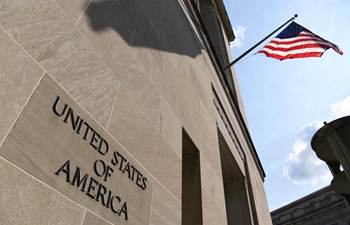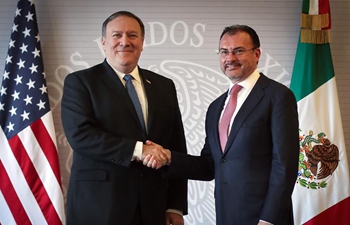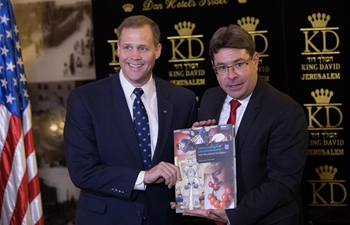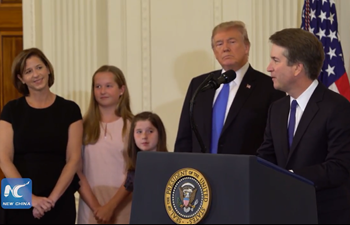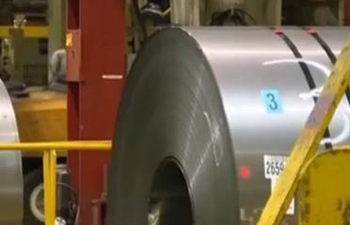SAN FRANCISCO, July 13 (Xinhua) -- Fruit growers in the U.S. northwest region are feeling uneasy about the current trade tensions between the United States and China as customs tariffs for some U.S. fruits have significantly increased since the start of this month.
Many growers and producers are concerned about the long-term impact of the U.S.-China trade frictions.
Even the growers of hazelnuts in the western U.S. state of Oregon are suffering from the tariff dispute and urged U.S. President Donald Trump's government to start talks with China, so that they can secure their share in the Chinese market, Jin Lan, president of the Oregon China Sister State Relations Council, told Xinhua Friday.
The council focuses on closer economic cooperation and trade with China at the sub-national level.
The tax hike on U.S. fruit exports to China will force farmers to sell more of their crops on local markets, a local farmer called Scott McIlrath told industry media this week.
"That brings down the price because there's just more cherries in a smaller market," he said.
The U.S.-China trade tensions come at a bad time for 1,400 cherry farmers in Washington state and 1,100 elsewhere in the Pacific Northwest region because cherries are in the middle of harvest and apples will be picked in the coming months.
The U.S. Northwest Horticultural Council said the cherry harvest season generally runs from early June through August.
It said China is the number-one market for Pacific Northwest fruits, and it has sold 2.98 million 9-kilo boxes of cherries to China, worth about 130 million U.S. dollars, and accounting for 11 percent of the total crop and a third of export sales.
The total production of cherries in the northwest region, including the states of Washington, Idaho, Montana and Utah, stood at about 26.4 million 9-kilo boxes last year, with Washington being the top producer.
Mark Powers, president of the Northwest Horticultural Council, said earlier this week that American fruit exports to China rose about 60 percent due to a rising middle class population in China, the world's second-largest economy.
If additional tariffs of 25 percent are imposed on cherry growers, they would face a risk of skyrocketing costs and therefore would, in the worst scenario, be forced to skip the harvest in the coming months, he told local media.
"The cherry industry is such a rapid market that these decisions are made hour-to-hour ... based on what the sales guys are telling their growers," he said.
Powers estimated that the full effect of China's tariff increases on other fruits such as apples will not be known until the fall harvest.
China announced a tit-for-tat tariff retaliation on July 6 when President Trump's administration officially imposed a 25 percent additional tax on Chinese products worth 34 billion dollars.
The tariff hike has dramatically raised duties on fruits exported to China, and Washington state, as a major producer of apples, cherries and other fruits, will suffer more than any other, according to statistics of the U.S. Chamber of Commerce.
In 2017, Washington growers shipped nearly 1.8 million 18-kilo boxes of apples to the Chinese mainland and another million to Hong Kong, generating about 45 million to 50 million dollars, data from the Washington State Tree Fruit Association indicated.
Washington sells 90 percent of its apple varieties, such as Gala, Red Delicious and Granny Smith, to China every year, while a third of apples grown in the state are sold overseas, which makes it vulnerable to protectionist policies marked by high tariffs.
American exports of fruit and vegetable products to China had actually dropped by 13.58 percent after the tariffs were imposed on July 6, figures of industry professionals showed.








